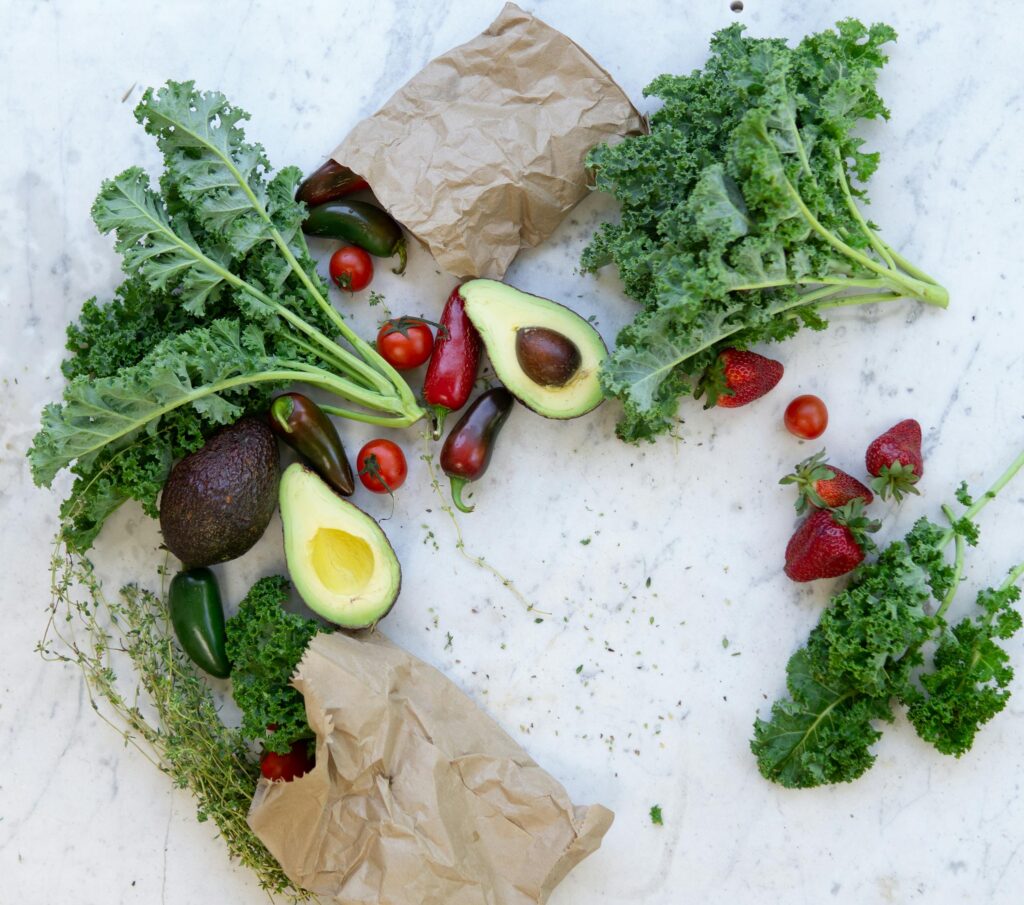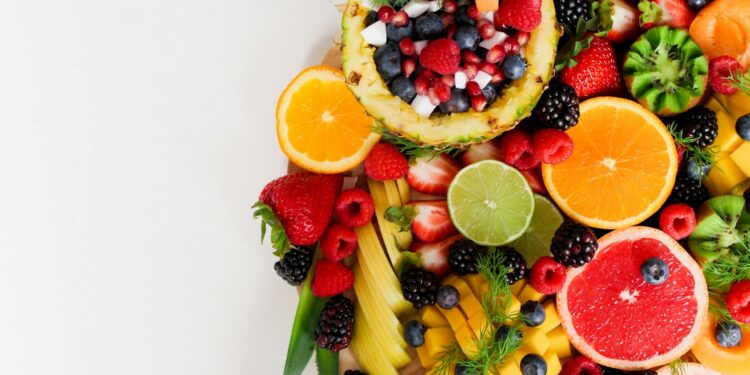In today’s fast-paced world, getting proper nutrition can be challenging. However, incorporating superfoods into your weekly diet can significantly boost your health and well-being. These nutrient-dense foods pack an impressive array of vitamins, minerals, and antioxidants that can enhance your energy, improve immunity, and promote overall wellness.

1. Blueberries: The Brain-Boosting Wonder
Blueberries aren’t just delicious; they’re packed with antioxidants called anthocyanins that help protect your brain and improve memory. Studies show they may slow brain ageing and reduce the risk of cognitive decline.
How to incorporate:
- Add to morning oatmeal or yoghurt
- Blend into smoothies
- Enjoy as a healthy snack
- Mix into pancake batter
2. Leafy Greens (Especially Kale and Spinach)
Dark, leafy greens are nutritional powerhouses containing iron, calcium, fibre, and vitamins A, C, and K. They support everything from bone health to immune function.
Best ways to consume:
- Add to salads
- Blend into green smoothies
- Sauté as a side dish
- Include in soups and stews
3. Salmon: Omega-3 Superfood
Wild-caught salmon is one of the best sources of omega-3 fatty acids, which are crucial for brain health, reducing inflammation, and supporting heart health.
Recommended preparation:
- Grilled with herbs
- Baked with lemon
- Added to salads
- Made into salmon patties
4. Quinoa: Complete Protein Powerhouse
This ancient grain contains all nine essential amino acids, making it a complete protein. It’s also rich in fibre, iron, and magnesium.
Versatile uses:
- The base for grain bowls
- Substitute for rice
- Morning porridge
- Added to soups
5. Avocados: Healthy Fat Champion
Packed with heart-healthy monounsaturated fats, fibre, and potassium, avocados help with nutrient absorption and maintain healthy cholesterol levels.
Creative ways to eat:
- Spread on toast
- Add to smoothies
- Use in salads
- Make guacamole
6. Turmeric: The Golden Anti-inflammatory
This bright yellow spice contains curcumin, a powerful anti-inflammatory compound that may help reduce chronic inflammation and boost brain function.
How to use:
- Add to curry dishes
- Make golden milk
- Season roasted vegetables
- Include in smoothies
7. Greek Yogurt: Probiotic Powerhouse
Rich in protein and beneficial probiotics, Greek yoghurt supports gut health and provides calcium for strong bones.
Daily applications:
- Breakfast base with fruits
- Substitute for sour cream
- Use in smoothies
- Make healthy dips
8. Nuts and Seeds (Especially Walnuts and Chia Seeds)
These nutritional gems provide healthy fats, protein, fibre, and essential minerals. Walnuts are particularly good for brain health, while chia seeds are rich in omega-3s.
Easy additions:
- Sprinkle on salads
- Add to oatmeal
- Include in baked goods
- Make chia pudding
9. Sweet Potatoes: Vitamin A Champions
Loaded with beta-carotene, fibre, and vitamins, sweet potatoes support eye health, immune function, and healthy skin.
Preparation ideas:
- Bake as fries
- Mash as a side dish
- Roast with spices
- Add to soups
10. Green Tea: Antioxidant Elixir
Rich in polyphenols and L-theanine, green tea supports brain function, aids in fat metabolism, and provides steady, calm energy.
Ways to enjoy:
- Drink hot or iced
- Use in smoothies
- Cook grains in it
- Make ice pops
Tips for Incorporating Superfoods
- Start Gradually
-
- Introduce one new superfood at a time
- Allow your body to adjust to increased fibre
- Experience different preparations
- Smart Shopping
- Buy seasonal when possible
- Consider frozen options for berries
- Purchase in bulk when practical
- Meal Planning
- Prepare ingredients in advance
- Create superfood-rich snack boxes
- Plan meals around these nutritional powerhouses
Conclusion
Incorporating these superfoods into your weekly meal plan doesn’t have to be complicated. Start with a few that you enjoy and gradually add more. Remember, consistency is key—it’s better to eat these foods regularly in moderate amounts than to binge occasionally. Your body will thank you for providing it with these nutrient-dense, health-promoting foods.
Remember to consult with a healthcare provider before making significant changes to your diet, especially if you have any medical conditions or take medications.
















